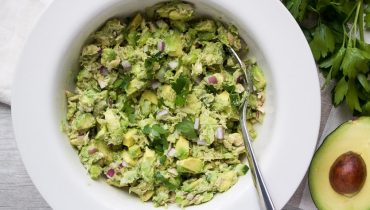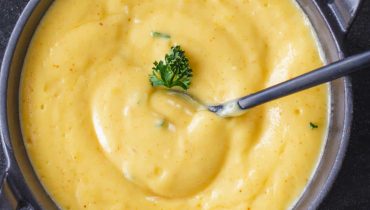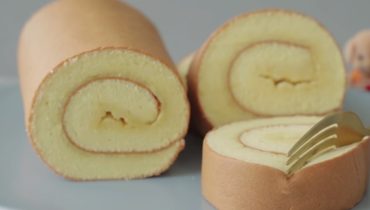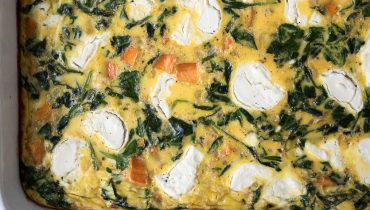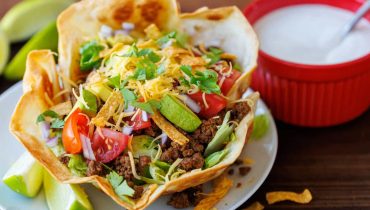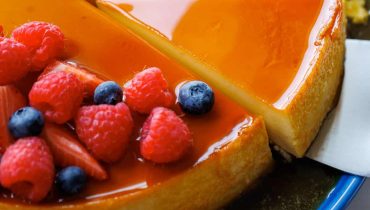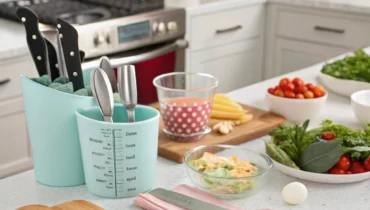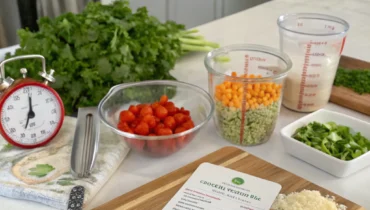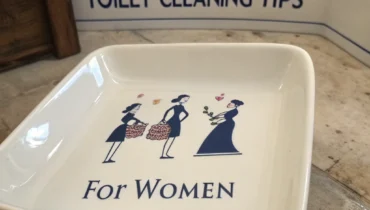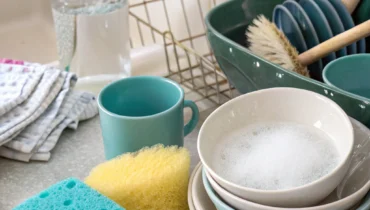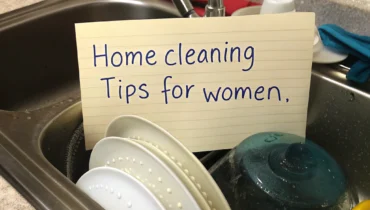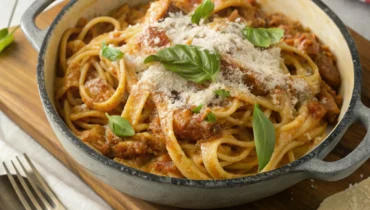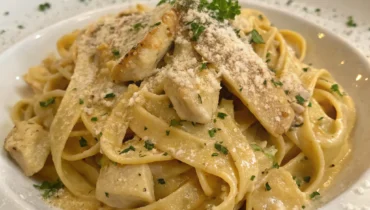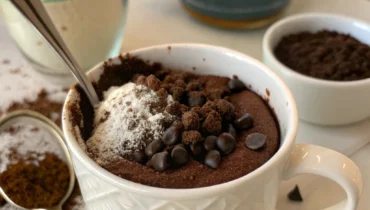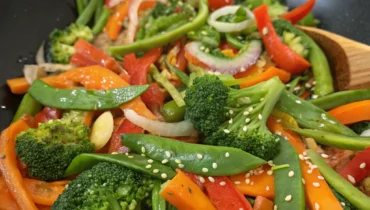Perfect Boiled Eggs
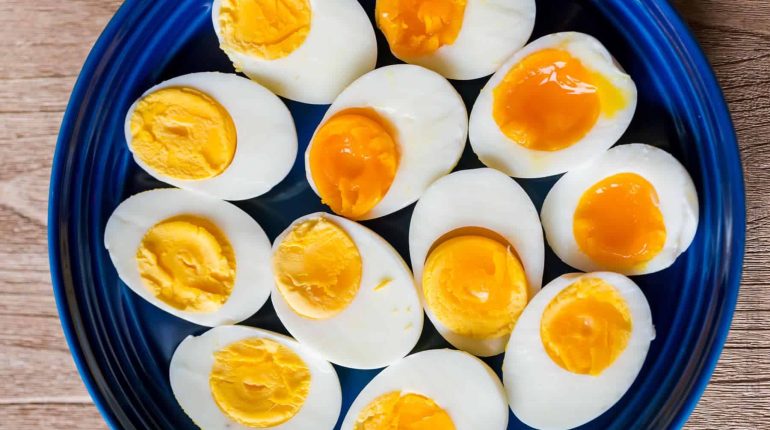
Posted November 7, 2023 by: Admin
How long to boil eggs? It seems simple enough but most people overcook their eggs. Here’s how to make perfect hard-boiled eggs or soft-boiled eggs.
Everyone needs a go-to method for perfectly cooked eggs every time for making Deviled Eggs and Egg Salad. This method is really easy – all you need is a saucepan and water.
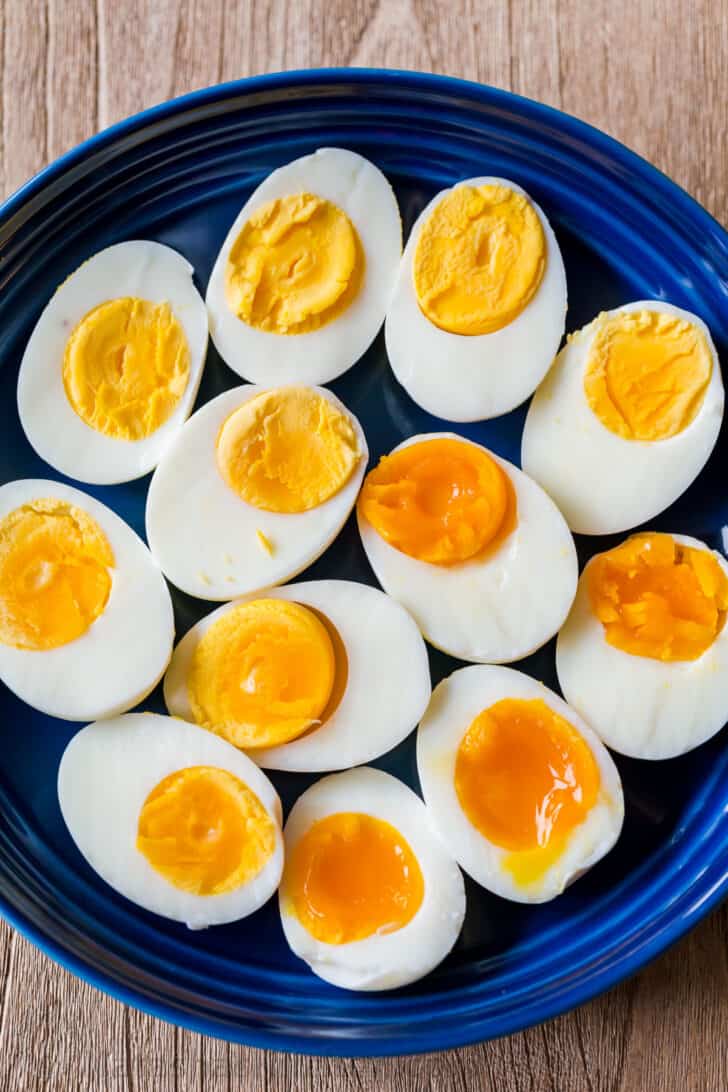
Perfect Boiled Eggs
Are you tired of overcooked green or grey egg yolks, rubbery whites, or discovering an oozing yolk when you need a firm one for your Chicken Cobb Salad? Do you tend to overcook your eggs just to be sure they are done? This tutorial is for you!
Learn how to make hard-boiled eggs with our tried and true (easy-peel) method. Boiled eggs are such a versatile ingredient and every cook should have this skill down. You will be a pro in no time, enjoying all of your favorite Boiled Egg Recipes, and let’s not forget Easter Eggs.
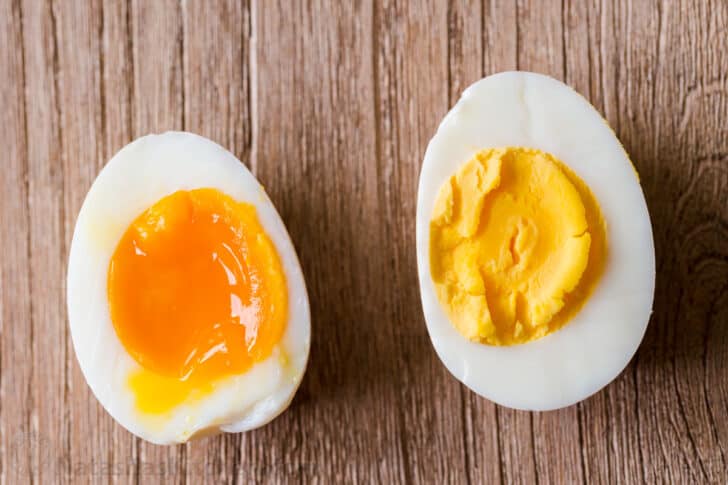
What are the Best Eggs for Boiling?
Eggs come in different sizes (small to jumbo) and varieties (natural, free-range, organic, omega-3, etc). The primary things to consider for boiled eggs are:
- Egg Freshness – Older store-bought eggs are easier to peel. Farm fresh eggs (from backyard chickens) should be cooked under high pressure in the instant pot or they can be very difficult to peel.
- Size Matters – We use Large Grade AA eggs. Large eggs (2 ounces each) are the standard size in most recipes so we stick with those. Medium eggs will cook faster and Extra Large or Jumbo eggs will take a little longer.
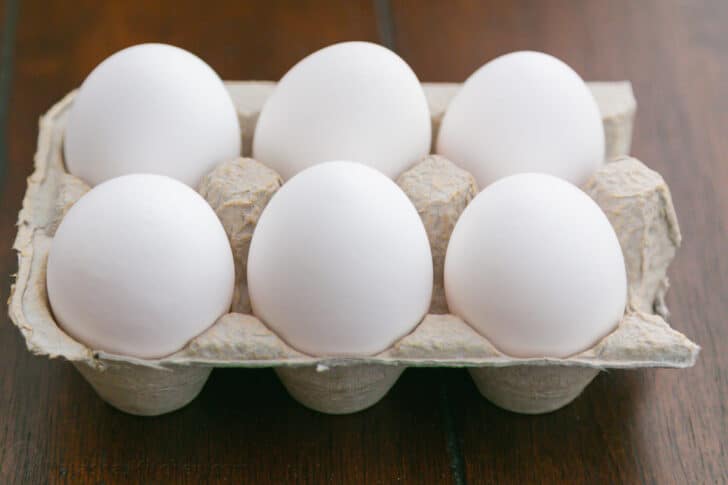
Tips for Perfect Hard Boiled Eggs:
- Use the same pan every time for consistent results. We use a large 3-quart stainless steel saucepan. Different types of pans such as cast iron can take longer to come to a boil which may need less cooking time once eggs are at a boil.
- Don’t cover with the lid or you won’t be able to see when the water starts boiling.
- Set a timer as soon as the water is at a boil (keep watch for the start of the boil so you aren’t guessing at your timings).
- Have a bowl of ice water ready so you can lower your eggs into there as soon as the timer is done. This stops the cooking process and makes them easier to peel.
How to Boil Eggs
- Place cold eggs in a large stainless steel pot and cover with cold water, filling 1″ over the surface of the eggs. Bring to a rolling boil over high heat uncovered.
- Once at a boil, reduce heat to keep a medium boil then set a timer for your desired doneness (see chart below).
- Prepare your ice water bath and as soon as the timer is done, transfer eggs into ice water.
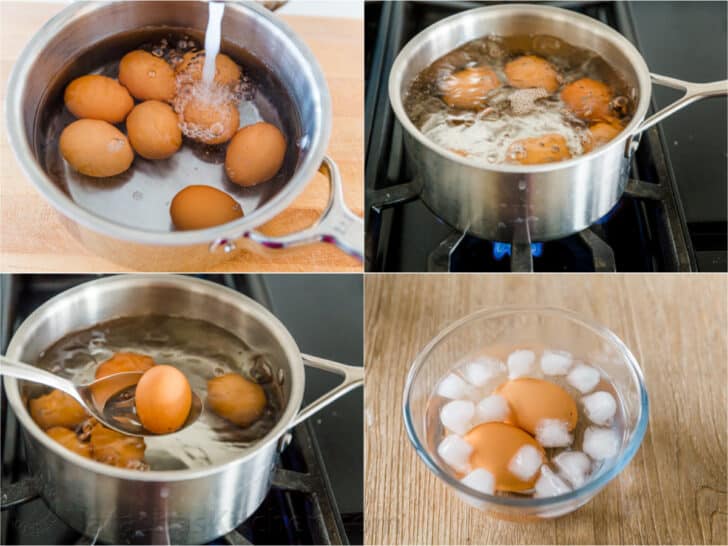
How Long to Boil Eggs?
As soon as the water comes to a boil, set your timer and follow this time chart for soft boiled to hard-boiled eggs. Tip: You can pull them out at different times and set up different bowls with ice water to make a variety of eggs all in one pot.
- Boil for 2 minutes: soft boiled with a liquid center
- 3 minutes: soft-boiled with a creamy center
- 4-5 minutes: medium-boiled with a moist, soft center
- 6-7 minutes: hard-boiled eggs with a soft center
- 8-9 minutes – fully hard-boiled eggs with firm, dry center
A perfect hard-boiled egg should have fully set (but not rubbery) whites, have a bright yellow center, and should never have a green tinge around the yolk which signifies overcooking. Soft-boiled eggs have fully set whites and a creamy liquid center.
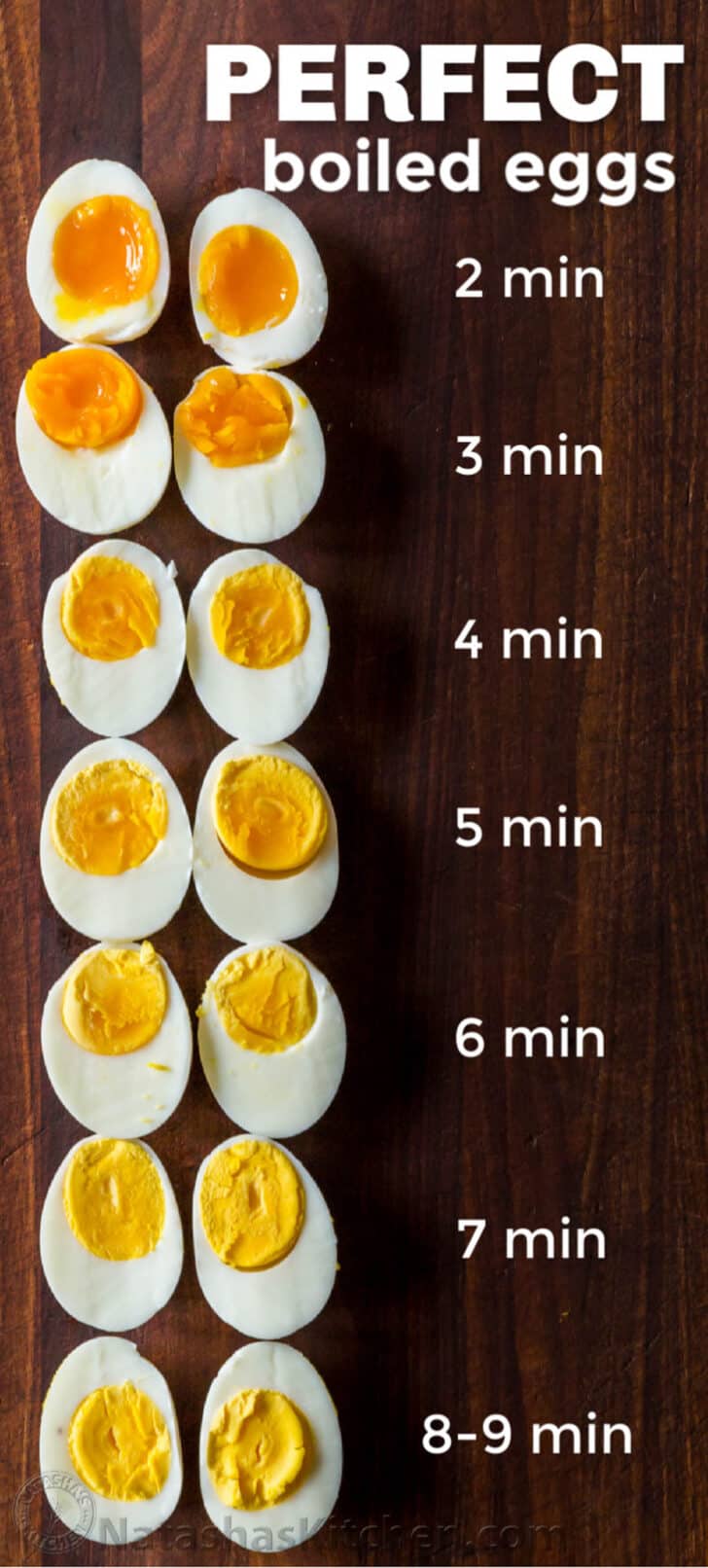
Common Questions
Is salt needed for boiled eggs?
Adding salt increases the boiling point of water but only by about 1 degree which is insignificant. Unless you are adding a ton of salt, it doesn’t make a difference. We do not add salt.
Do you need vinegar for eggs?
It is thought that adding vinegar to the water helps with easier peeling of eggs, but vinegar only dissolves the outer layer of the shell. It is unnecessary and can be skipped.
Can I use farm-fresh eggs?
If you have fresh eggs, the best method is instant pot boiled eggs which are easier to peel.
What is the best way to peel eggs?
Start peeling at the thick end of the egg where the air bubble is located to get under the membrane for easy shell removal. Also, peeling eggs under running cold water forces water under the membrane for easier shell removal.
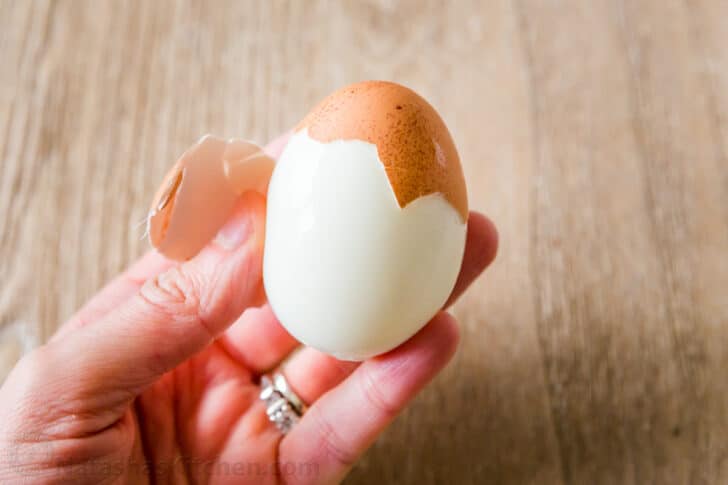
This method for making hard-boiled eggs (or soft boiled eggs) will get you perfect results every time and it’s really easy!
- Place cold eggs in a large 3-quart stainless steel saucepan and cover with cold water so water is 1″ above the surface of the eggs. With the lid off, bring to a rolling boil over high heat.
- Once at a boil, reduce heat to keep at a medium boil and set a timer for your desired doneness (see chart below).
- Prepare your ice water bath and as soon as the timer is done, transfer eggs into ice water so they are fully submerged. Refrigerate eggs once cool and peel when ready to use.
Hard Boiled Eggs Timing Chart:
- Boil 2 min: soft boiled with a liquid center
- Boil 3 min: soft-boiled with a creamy center
- Boil 4-5 min: medium-boiled with a moist, soft center
- Boil 6-7 min: hard-boiled eggs with a soft center
- Boil 8-9 min: hard-boiled eggs with firm dry center

